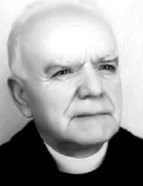

Domingos Maurício, the son of Albino Gomes and Albina Marques dos Santos, small landowners, moved at the age of seven to live with his uncle, Fr. Joaquim Tomé Marques dos Santos, who was then the parish priest of Aranda (Ovar). Fr. Joaquim Santos oversaw his early education and enrolled him in a primary school in a neighbouring parish, as there were no schools in Aranda. Noting a calling in Domingos Maurício to pursue the priesthood, his uncle, with his parents' consent, enrolled him (October 1907) at the minor seminary of the Jesuits in Guimarães, then known as the Escola Apostólica da SS. Trindade [Holy Trinity Apostolic School].
One of the initial actions of the new regime was, among other actions, to expel the Jesuits. Neither Spain nor France allowed the establishment of Portuguese Jesuit communities within their territories, as a result, the novitiate was relocated to Exaten (in the Netherlands). There, two years ahead of the usual schedule, and due to his advanced studies and maturity, Domingos Maurício began his religious life on 7 December 1910. In early 1911, the novitiate of the Portuguese Province of the Society of Jesus was relocated to Alsenberg (near Brussels). Upon turning 17, as mandated by canon law, Domingos Maurício made his first religious vows there. During this period, he began his humanities studies, which spanned four years under the guidance of Fr. Luís Gonzaga Cabral (Provincial of the Society of Jesus at the time of the expulsion), whom he also selected as his spiritual director.
The outbreak of World War I and the turmoil it brought to the heart of Europe unsettled the stability of the Alsenberg community. Once more, the exiled Portuguese Jesuits relocated, this time returning closer to Portugal, through the Netherlands. They settled in Murcia, Spain, where Domingos Maurício completed his humanities studies. Then, between 1916 and 1919, he attended the Society of Jesus Faculty in Granada, graduating with outstanding grades. As was customary, he paused his studies to dedicate himself to teaching for four years, teaching Portuguese language and literature, oratory, Latin, Greek, and Hebrew. He went on to train candidates for the Society at the minor seminary in San Martín de Trevejo (Cáceres) and later taught young Jesuit students in Oya (Pontevedra).
This work is financed by national funds through FCT - Foundation for Science and Technology, I.P, in the scope of the projects UIDB/04311/2020 and UIDP/04311/2020.
